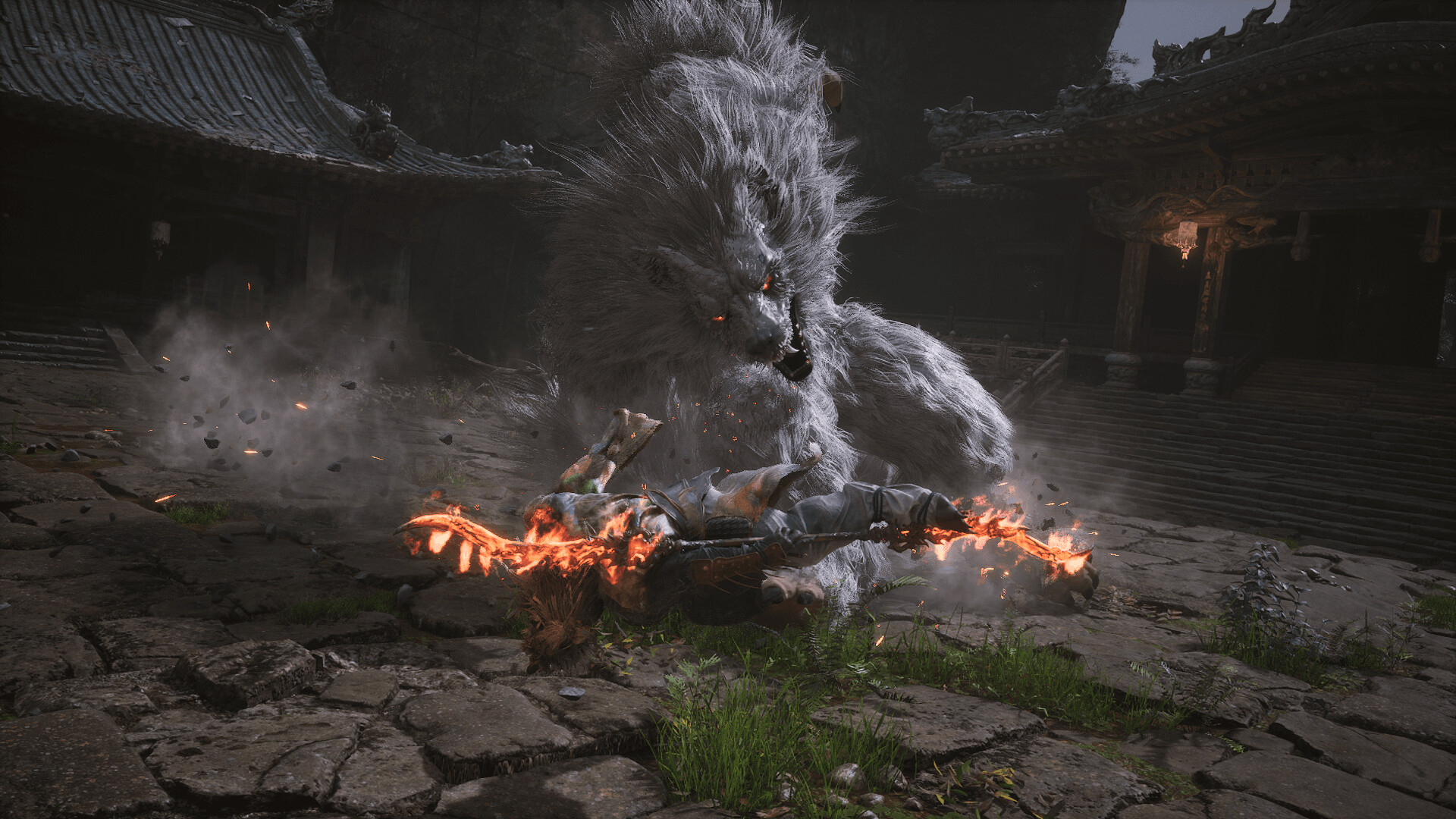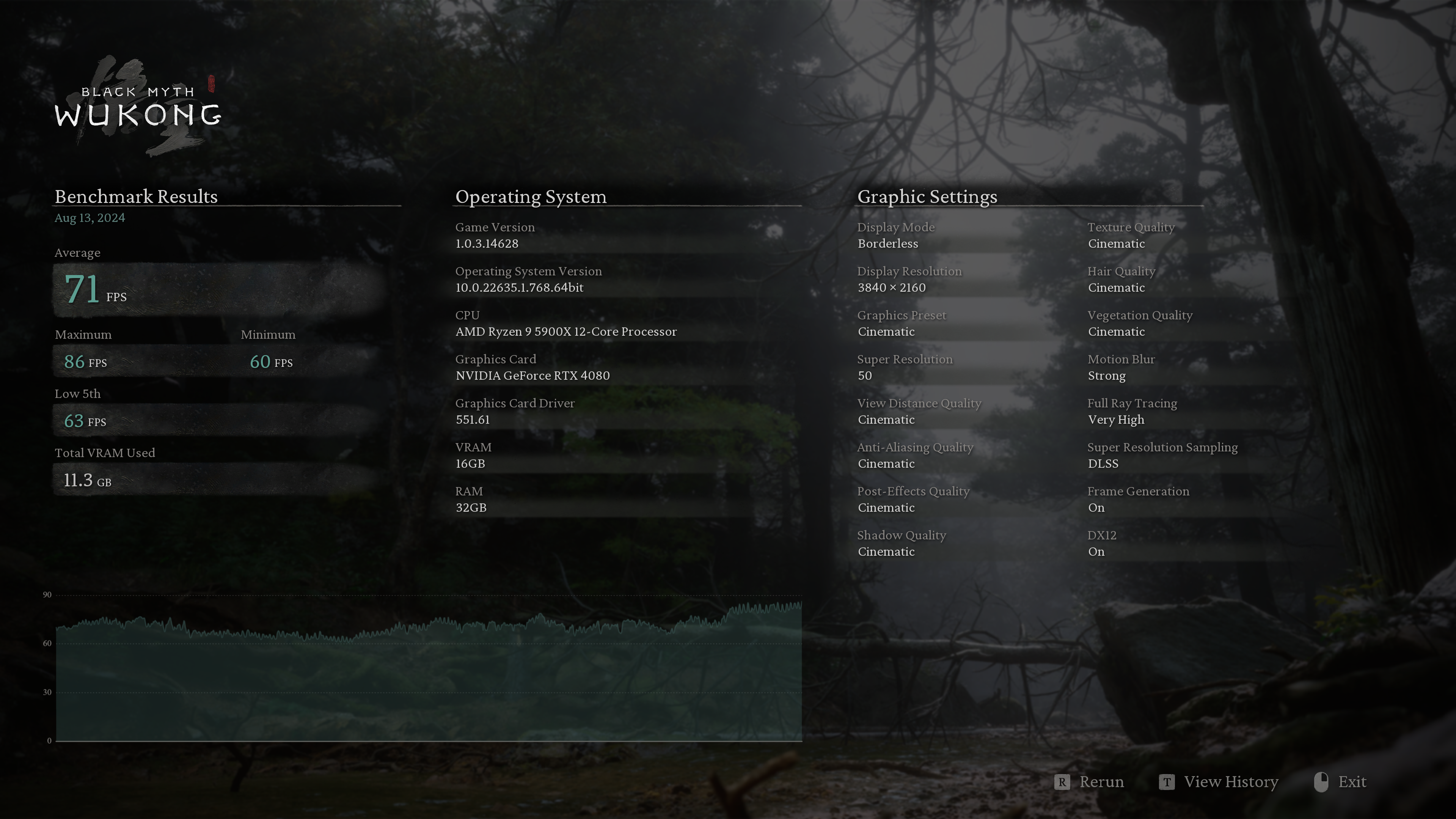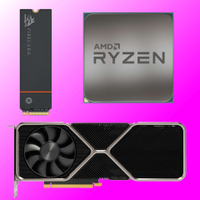Black Myth: Wukong's most-wishlisted status means its new benchmarking tool is the 18th most played 'game' on Steam right now
Don't get too excited, it's not the actual game. Though as far as benchmarking tools go, it's a good'un.

Black Myth: Wukong has swiftly risen up to become the most wishlisted game on Steam. Though it doesn't come out for one whole week. Ugh. Thankfully we can spend our time wisely in preparation for the big day—by repeatedly running the game's new benchmarking tool to nail our settings just right.
The new benchmarking tool is listed over on Steam for download. It's free, of course, and doesn't require you to have pre-ordered the game. It's actually popular in its own right, as since its release mere hours ago it's become the 18th most played 'game' on Steam, with over 60,000 players at its peak.
This is the sort of hunger for benchmarking that we relish here on the PC Gamer hardware team. Hey, if you love benchmarking so much, why don't you come work here. That's not a joke.
I've been playing around with the benchmarking tool this morning, and in most respects it appears a pretty darn good one. You can tweak most of the game settings within the tool itself, which means you can genuinely find the best settings for the game for your specific system ahead of its release.
I've run my gaming PC through the test. It's made up of an RTX 4080, Ryzen 9 5900X, 32 GB DDR5 RAM, too many SSDs to count, and a chunky air cooler (air ftw). There's also a 4K gaming monitor attached for good measure. According to the benchmark, I'm able to crank out 70 fps at 4K (61 fps min) with every graphics setting maxed out—including ray tracing and cinematic quality visuals. I also have DLSS enabled in Balanced mode with Frame Generation switched on, which helps out a ton.
The inclusion of DLSS, XeSS, and FSR is sure to help most gamers out. We've run the benchmark with high settings, no ray tracing, and XeSS enabled at 3440 x 1400 on Intel's Arc A770 and managed to reach 34 fps. Okay, that's not great by comparison to Nvidia's top cards but it's at least relatively playable thanks to upscaling.

It's worth running the benchmark a few times to get a stable score, however. I ran it once and something was still building in the background and this caused some stutters later in the run. Those had gone by the third time through.
The biggest gaming news, reviews and hardware deals
Keep up to date with the most important stories and the best deals, as picked by the PC Gamer team.
Black Myth: Wukong is set to release on August 20, 2024. Nvidia already has drivers available for the game, which you can download from the official Game Ready driver website, though neither AMD or Intel have any out yet.
If you want to install the game come launch day, you'll need to clear the way on your PC. This game demands 130 GB of storage space, ideally on an SSD. Also some sort of upscaling, be it DLSS, XeSS or FSR, is expected. Here are the rest of the system requirements:
| Header Cell - Column 0 | Minimum | Recommended |
|---|---|---|
| CPU | Intel Core i5 8400, AMD Ryzen 5 1600 | Intel Core i7 9700, AMD Ryzen 5 5500 |
| Memory | 16 GB RAM | 16 GB RAM |
| GPU | Nvidia GeForce GTX 1060 6GB, AMD Radeon RX 580 8GB | Nvidia GeForce RTX 2060, AMD Radeon RX 5700 XT, Intel Arc A750 |
| Storage | 130 GB (SSD recommended) | 130 GB (SSD recommended) |
Black Myth: Wukong sets pretty low requirements of your PC. Though from our own runs with the Arc A770, it's clear you'll need to cut back on most settings and crank XeSS all the way up to run on an Arc A750 or similar.
Best CPU for gaming: Top chips from Intel and AMD.
Best gaming motherboard: The right boards.
Best graphics card: Your perfect pixel-pusher awaits.
Best SSD for gaming: Get into the game first.

Jacob earned his first byline writing for his own tech blog. From there, he graduated to professionally breaking things as hardware writer at PCGamesN, and would go on to run the team as hardware editor. He joined PC Gamer's top staff as senior hardware editor before becoming managing editor of the hardware team, and you'll now find him reporting on the latest developments in the technology and gaming industries and testing the newest PC components.


